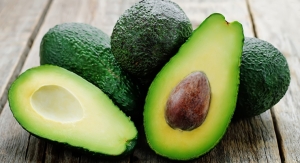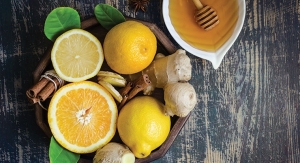01.29.19
Acrylamide is fast becoming a big concern for the food industry, due to growing evidence of its role as a potential carcinogen. Acryleast is a new, non-GMO solution for acrylamide reduction brought to market by Kerry in partnership with Renaissance BioScience. It is a clean-label, non-GMO yeast, rich in asparaginase enzyme, which has the ability to reduce acrylamide levels by up to 90% across a broad range of food and beverage products, including biscuits, crackers, French fries, potato crisps, coffee, and infant food, the companies said.
Governments around the world are starting to pay attention to acrylamide and are implementing new regulations, which include setting benchmark levels (European Union) and requiring warning signs placed on foods and beverages that contain acrylamide (California Proposition 65).
“Across our entire taste and nutrition portfolio, we are keen to ensure that the functionality of our ingredients is reliable and consistent,” said Matthew May, Kerry’s bakery lead for Europe and Russia. “On this basis, we repeatedly tested Acryleast’s effectiveness in reducing acrylamide levels across a range of biscuit and cracker applications. This involved testing in both our own laboratories and in scaled-up plant trials, where reductions of greater than 90% were achieved. Importantly, these trials also demonstrated no impact on taste or texture, confirming that Acryleast is a very effective and versatile solution for acrylamide reduction, that requires no or minimal changes to existing manufacturing processes.“
Mike Woulfe, vice president of business development, Enzymes, at Kerry commented, “For Kerry, it was essential to launch a solution that was clean label and non-GMO so that both producers and consumers could trust that acrylamide was being reduced consistently, and in the right way. We are delighted to partner with Renaissance, an innovative life science company. Their non-GMO approach to acrylamide reduction fits very well with our clean-label strategy. Our extensive laboratory and sensory analyses have demonstrated that foods produced using Acryleast are comparable in appearance, aroma, flavor and texture to those produced without Acryleast. It is a versatile solution that offers manufacturers an acrylamide reduction strategy that is much more effective than alternative approaches, which require them to fundamentally change their process (e.g., lowering temperatures, processing time or changing raw ingredients).”
Cormac O’Cleirigh, chief business development officer at Renaissance BioScience Corp added: “For customers looking for peace of mind and a more natural, non-GMO, sustainable solution to a naturally occurring problem, Acryleast is the perfect natural and clean-label solution. Couple this with Kerry’s global scale and unmatched taste, applications and sensory expertise, and you have the recipe for long-term success.”
Kerry has initially focused Acryleast application analysis in the categories of baked goods, however this is being expanded to snacks, processed potatoes and other categories, as the market for non-GMO acrylamide reduction solutions continues to gain traction.
Kerry is rolling out Acryleast globally (with the exception of 11 markets); Orkla Food Ingredients has a license agreement with Renaissance BioScience Corp to promote its acrylamide-reducing yeast enzyme to the Nordic and Eastern European market.
Governments around the world are starting to pay attention to acrylamide and are implementing new regulations, which include setting benchmark levels (European Union) and requiring warning signs placed on foods and beverages that contain acrylamide (California Proposition 65).
“Across our entire taste and nutrition portfolio, we are keen to ensure that the functionality of our ingredients is reliable and consistent,” said Matthew May, Kerry’s bakery lead for Europe and Russia. “On this basis, we repeatedly tested Acryleast’s effectiveness in reducing acrylamide levels across a range of biscuit and cracker applications. This involved testing in both our own laboratories and in scaled-up plant trials, where reductions of greater than 90% were achieved. Importantly, these trials also demonstrated no impact on taste or texture, confirming that Acryleast is a very effective and versatile solution for acrylamide reduction, that requires no or minimal changes to existing manufacturing processes.“
Mike Woulfe, vice president of business development, Enzymes, at Kerry commented, “For Kerry, it was essential to launch a solution that was clean label and non-GMO so that both producers and consumers could trust that acrylamide was being reduced consistently, and in the right way. We are delighted to partner with Renaissance, an innovative life science company. Their non-GMO approach to acrylamide reduction fits very well with our clean-label strategy. Our extensive laboratory and sensory analyses have demonstrated that foods produced using Acryleast are comparable in appearance, aroma, flavor and texture to those produced without Acryleast. It is a versatile solution that offers manufacturers an acrylamide reduction strategy that is much more effective than alternative approaches, which require them to fundamentally change their process (e.g., lowering temperatures, processing time or changing raw ingredients).”
Cormac O’Cleirigh, chief business development officer at Renaissance BioScience Corp added: “For customers looking for peace of mind and a more natural, non-GMO, sustainable solution to a naturally occurring problem, Acryleast is the perfect natural and clean-label solution. Couple this with Kerry’s global scale and unmatched taste, applications and sensory expertise, and you have the recipe for long-term success.”
Kerry has initially focused Acryleast application analysis in the categories of baked goods, however this is being expanded to snacks, processed potatoes and other categories, as the market for non-GMO acrylamide reduction solutions continues to gain traction.
Kerry is rolling out Acryleast globally (with the exception of 11 markets); Orkla Food Ingredients has a license agreement with Renaissance BioScience Corp to promote its acrylamide-reducing yeast enzyme to the Nordic and Eastern European market.




















